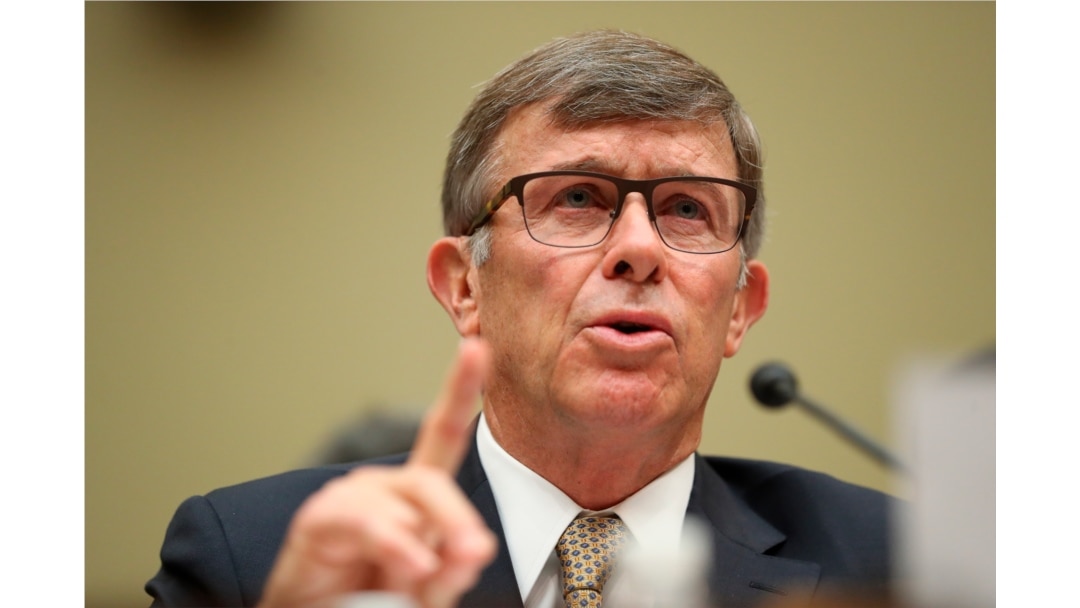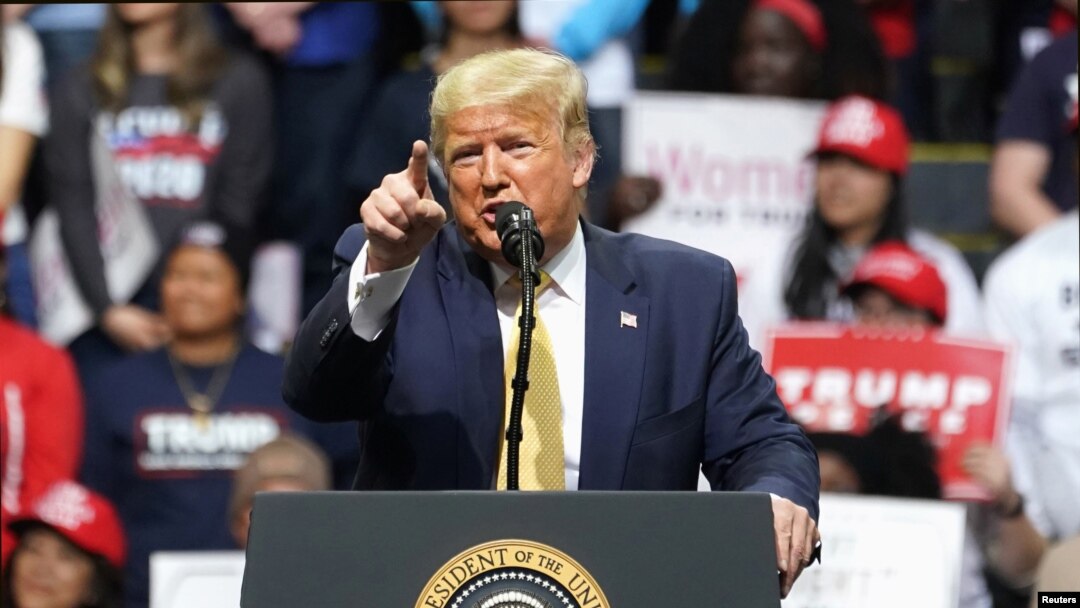The White House will start with a clean slate as it works to reshape the leadership of the United States intelligence community, pushing the country’s acting No. 2 official out just days after firing his boss.
The Office of the Director of National Intelligence late Friday announcing the departure of its second-in-command, Andrew Hallman.
Hallman, a 30-year veteran of the U.S. intelligence community, had been serving in an acting capacity as the principal deputy director since last September.

Acting Director of National Intelligence Joseph Maguire testifies before the House Intelligence Committee on Capitol Hill in Washington, Sept. 26, 2019.
His departure follows that of former acting Director of National Intelligence Joseph Maguire, who was cast aside by U.S. President Donald Trump after one his top aides gave lawmakers a classified briefing last week about Russian attempts to meddle in the U.S. presidential elections in November.
According to media reports, the aide told lawmakers Russia is seeking to boost the president’s reelection chances, angering Trump, who feared the information could be used against him.
On Wednesday, the president announced he was replacing Maguire with U.S. Ambassador to Germany Richard Grenell, a well-known Trump loyalist.
But there are indications Trump is not satisfied.
The president Friday took to social media to accuse Democrats of trying to weaponize the information, slamming the report as a hoax.
“Another misinformation campaign is being launched by Democrats in Congress saying that Russia prefers me to any of the Do Nothing Democrat candidates who still have been unable to, after two weeks, count their votes in Iowa,” he tweeted Friday.
Trump also said he is getting closer to naming a new, permanent top intelligence official, announcing he has narrowed the list of possible candidates to a handful of finalists.
“Four great candidates are under consideration at DNI,” Trump tweeted Friday. “Decision within next few weeks!”
The United States has been without a permanent director of national intelligence since mid-August 2019, when former Director Dan Coats stepped down following a series of public clashes with Trump over intelligence assessments.
In a statement Friday, Hallman said he was “humbled to work alongside Joe Maguire,” calling the former acting DNI “a lifelong patriot and public servant.”
“As I prepare to depart, I have complete confidence in the IC [intelligence community] workforce and the enduring qualities of the community — stability, integrity, and relentless dedication to serving the nation,” Hallman added. “These qualities will guide the IC through this next chapter and the uncertainties that come with change.”
Reaction from Democratic lawmakers to the president’s decision to remove his top intelligence officials was swift.
Rep. Bennie Thompson, D-Miss., the ranking member of the House Homeland Security Committee, joins House Minority Leader Nancy Pelosi, D-Calif., right, at a news conference, June 29, 2017.
“I am gravely concerned,” House Homeland Security Committee Chairman Bennie Thompson said in a statement late Thursday.
“By firing Acting DNI Maguire because his staff provided the candid conclusions of the Intelligence Community to Congress regarding Russian meddling in the 2020 presidential election, the president is not only refusing to defend against foreign interference, he’s inviting it,” Thompson added.
House Intelligence Committee chairman, Democrat Adam Schiff, who was allegedly at the classified briefing, also expressed concern.
“We count on the intelligence community to inform Congress of any threat of foreign interference in our elections,” Schiff tweeted. “If reports are true and the president is interfering with that, he is again jeopardizing our efforts to stop foreign meddling. Exactly as we warned he would do.”
Former intelligence officials have also voiced concern.
“The over-arching message is the president simply doesn’t care, and simply wants a hood-ornament loyalist sitting in the chair,” former Director of National Intelligence James Clapper told VOA.
The rocky relationship between Trump and U.S. intelligence agencies dates back to the 2016 presidential election, when the intelligence community concluded, "[Russian President Vladimir] Putin and the Russian government aspired to help President-elect Trump's election chances when possible,” the leading U.S. intelligence agencies wrote in an unclassified report released in 2017.
Former special counsel Robert Mueller, checks pages in the report as he testifies before the House Judiciary Committee hearing on his report on Russian election interference, on Capitol Hill, July 24, 2019 in Washington.
Those conclusions were backed up by a report in April 2019 by special counsel Robert Mueller, which found, “the Russian government perceived it would benefit from a Trump presidency and worked to secure that outcome."
But Trump has consistently denied any Russian interference, repeatedly deferring to Putin’s denials.
"He said he didn't meddle," Trump told reporters following a conversation with Putin in Vietnam. "He said he didn't meddle. I asked him again. You can only ask so many times."
Still, U.S. intelligence officials have said, repeatedly, that not only did Russia meddle in 2016, but that it did so again in 2018 and that it would meddle in the 2020 presidential elections, as well.
"It wasn't a single attempt. They're doing it as we sit here," Mueller told lawmakers last July. "And they expect to do it during the next campaign."
The White House is facing a March 11 deadline to nominate a new, permanent director of national intelligence or risk having the position go vacant.
Under U.S. law, the president must at least nominate someone to a position requiring Senate confirmation within 210 days of the position being vacated, meaning the acting director, whether it was Maguire or Grenell, would have to step down.
“The clock doesn’t restart each time the president names someone else [as acting director],” Steve Vladek, a law professor at the University of Texas at Austin, told VOA.
“If no nominee is submitted in time, Grenell ceases to be the acting DNI, and no one can replace him,” he added. “Someone still has to ‘exercise the functions’ of the acting DNI, but that would fall to whoever the senior person at ODNI currently is.”


